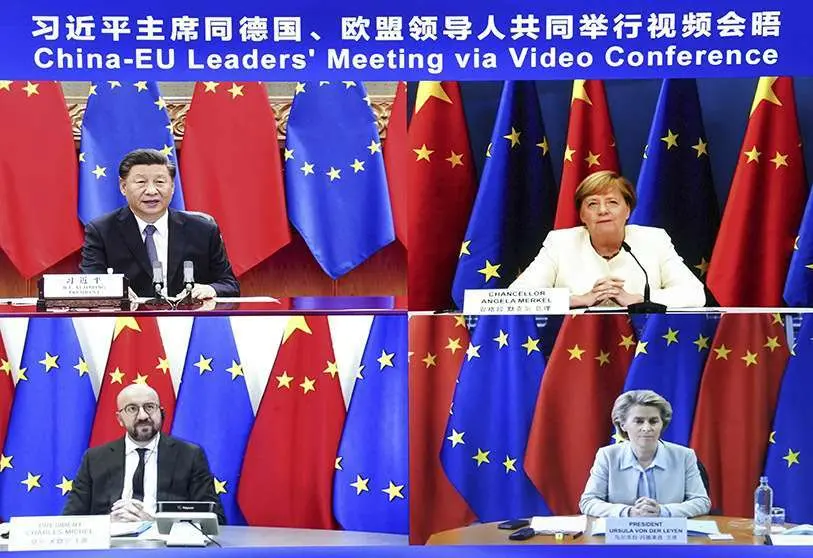How should Europe define its approach towards China - confrontation or cooperation?

Over the past decade, China's economic power and political influence have grown dramatically, reflecting the country's ambition to become a major global power. This poses a challenge for the Western world, and especially for the EU.
China's growing presence around the globe is mainly due to its centralised economic system, based on an export-led growth model, and its 50-year forward planning. Now, China's goal is to become gradually self-sufficient, while making other countries more dependent on it, thus turning its external economic ties into geopolitical power.
This has negative implications for EU interests and values. First, China is promoting and supporting authoritarian systems such as Venezuela and North Korea, not only economically but also by exporting its political system, donating, for example, technological systems of citizen control. Secondly, China is weakening the multilateral system by taking over international organisations in order to serve its national interests, as is happening in the WHO or the International Standards Setting Organisations. In addition, China is creating its own development institutions, banks and continuously working on its Belt and Road Initiative. In other words, it is creating its own international system. Third, through its costly investments in energy, transport, infrastructure, mining and communications in all regions of the world, the Chinese Communist Party is gaining political leverage to promote its interests. For example, Costa Rica and Panama have been pressured to break diplomatic relations with Taiwan, and no longer recognise it as a sovereign state. In addition, China is gradually increasing its influence within the EU's borders, especially in the Western Balkans. For example, Montenegro borrowed money from a Chinese bank to build a motorway, and as it does not have the capacity to repay the loan, Montenegro will have to give up land as compensation. China's objective is to obtain Bar, the largest industrial port in the Balkans and a gateway to Central Europe. Finally, China's current position on the international economic and political stage allows it to violate human rights without repercussions, as in the cases of the repression of the Uighurs and Hong Kong.
In this context, it would be wise to establish a relationship based on a two-pronged approach: cooperation on common global objectives - such as the fight against climate change, while firmly defending European democratic and liberal interests and values. To be effective, the EU will need to strengthen its transatlantic alliance and, more broadly, promote a global alliance of democracies to speak with one voice to China. This will give more power to sanction human rights violations and force China to respect the rules of the multilateral system - it would be good to start by denouncing Chinese violations of WTO rules. Similarly, the EU should coordinate with other democracies to promote a technological model based on democratic rights.
Finally, I believe that the EU should establish cooperation with China based on the "soft power" approach, developing greater economic, cultural, scientific and academic cooperation, which will give the EU influence in the country.
